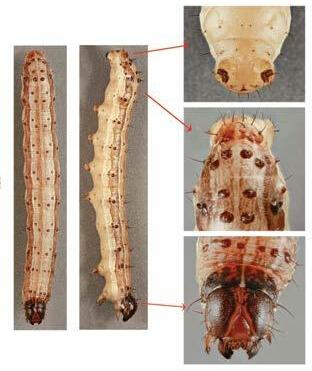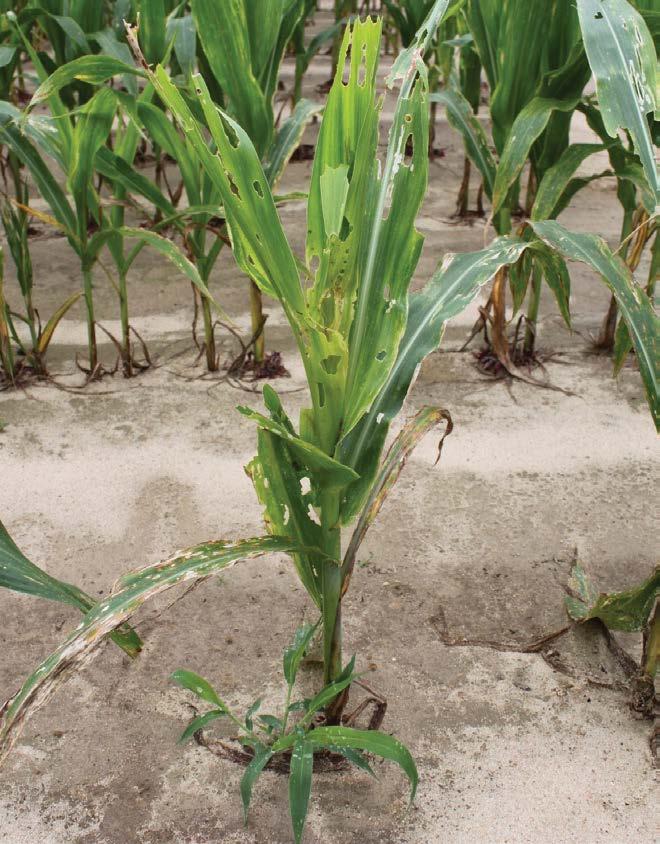
3 minute read
Process Vegetables NZ Inc
FALL ARMYWORM –
SURVEILLANCE AND SCOUTING IN THE NEW GROWING SEASON
Richard Palmer : Process Vegetables New Zealand general manager
As Government Industry Agreement (GIA) on biosecurity partners in the Fall Armyworm (FAW) response, both Process Vegetables New Zealand (PVNZ) and Vegetables New Zealand Inc (VNZI) have been actively involved in developing the operational plan for FAW in this growing season.
The intent for this season is to: • Identify if FAW remains present in New Zealand, or not • Identify if any residual FAW populations survived in areas of last season’s detections. This will assist with identifying over-winter survival, and the effectiveness of any controls that were applied • Undertake regional FAW trap surveillance in maize and sweetcorn crops to identify survival, spread or incursion of FAW • Encourage crop scouting in maize and sweetcorn crops to support knowledge of both FAW overwintering and the spread in growing regions (from New Zealand populations and/or new arrivals from offshore). Together with Biosecurity New Zealand, and Seed and Grain Readiness and Response (SGRR –covering maize growers), we have developed a surveillance plan across all regions of the North Island and parts of the South Island. This surveillance is aimed at identifying any residual populations of FAW and/or any new incursions or outbreaks of FAW in our key growing regions. The programme is guided by expert advice on surveillance for FAW, with regional grower or agronomist leadership to identify specific trapping locations, and support growers’ monitoring weekly for FAW in those traps. In addition, a process is established for any crop scouts to report both presence and absence of FAW. In select regions we are undertaking crop scout training, with some undertaken last season, and the Gisborne regional training is taking place at the end of September. We are working with regional leaders in other regions including Northland, Auckland/Pukekohe, and Hawke’s Bay about the workshops, and already some are planned: • Friday 21 October – Pukekohe • Monday 7 November – Whangārei • Tuesday 8 November – Waikato.


Fall armyworm larvae comparative to the size of a NZ $1 coin

The collective information of both presence and absence of FAW will enable us to identify the behaviour of FAW in New Zealand's unique climatic setting, and the seasonal timing of behaviour in order that we have knowledge of FAW and can subsequently mitigate the effect of this pest in crop production as required. We are heavily focused on those regions where FAW was detected last season. Industry-led surveillance is being coordinated with the Better Border Biosecurity (B3) surveillance that is being undertaken on properties where FAW was detected last season.
Given the quite different aspects of scouting, trapping and reporting of presence and absence, there are different mechanisms to report. For those involved in the surveillance trap programme, you will receive this information directly. For any crop scouting for FAW the process is as follows: If FAW is suspected, use the MPI 0800 80 99 66 number or the online reporting tool https://report.mpi.govt.nz/
pest/.
If scouting is thorough and no FAW is detected, please report absence through to the FAW Response team by email to FAW@mpi.govt.nz. Further up to date information on FAW, including a recently published Grower Guide, is available on the Process Vegetables website: https://www. processvegetables.co.nz/biosecurity/ or on MPI’s website: https://www.mpi.govt.nz/
dmsdocument/53053-2022-Fall-Army-Work-QuickGrowers-Guide.











